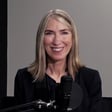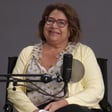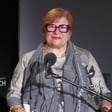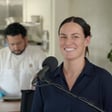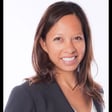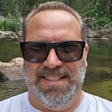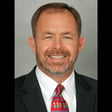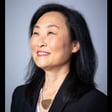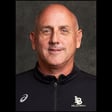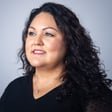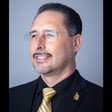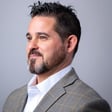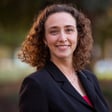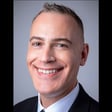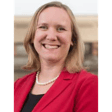Become a Creator today!Start creating today - Share your story with the world!
Start for free
00:00:00
00:00:01

"Student leader"
Nikki Majidi talks with Dan about the challenges and opportunities she encountered as ASI's 2024-25 president.
Transcript
Introduction to Podcast and Guest
00:00:16
Speaker
Hello, I'm Dan Montoya, Vice President of University Relations and Development here at Cal State Long Beach. Welcome to our podcast, At the Beach. This podcast shares news of Cal State Long Beach and ways that you can get involved.
00:00:30
Speaker
Today, I'm so delighted to introduce my guest, Nikki Majidi.
Nikki Majidi's Journey to Leadership
00:00:34
Speaker
Nikki serves as CSULB's 2425 Associated Students Incorporated President, a political science major with a minor in information systems,
00:00:46
Speaker
Her journey at CSULB began as a shy freshman who transformed into a passionate advocate for student rights and inclusivity. Nikki's involvement in campus organizations include founding the Iranian Student Association,
00:01:03
Speaker
and serving as Senior Vice President of Delta Sigma Pi, a co-ed business fraternity. Her advocacy for women's rights led her to qualify for nationals with a speech on topics through CSULB's award-winning Beach Forensic Team.
00:01:18
Speaker
As ASI President, Majidi focuses on bridging the gap between students and leadership emphasizing inclusivity and resource accessibility. With aspirations to attend law school and become a law professor, her leadership is driven by authenticity, integrity, and commitment to empowered students.
00:01:37
Speaker
Welcome Nikki, it's so good to have you. Hello, it's so good to be here today. Good. Well, we're going to go through a series of questions and you know we'll just have a conversation and get to know you a little better. but Can you share a little bit about your journey to becoming ASI president? What motivated you to run for this position? you know, talked about the journey. But um for me, I guess my journey was my freshman year. Like when I came here, I was like, you know what? I'm totally going to just try everything and anything that I can.
00:02:07
Speaker
And so my freshman year, I joined just about anything. I knew that I've known that I wanted to go to law school since I was like 12 years old. yeah So I was like, I think I'm going to have to have public speaking skills. I joined Beach Forensics.
00:02:19
Speaker
And through that, I did my first speech, which was on, it was a persuasive speech yeah on women's rights in Iran, specifically for the 2022 Iranian Revolution, which was happening my first semester here, which was fall 2022.
Academic Focus and Achievements
00:02:33
Speaker
Through that, I was able to learn, like, how much of a voice I really had. And so I started just joining stuff. I originally came in as a criminal justice major. I took one intro class, decided that was not for me.
00:02:45
Speaker
Wow. Props to anyone else who's in that major. I decided to switch my major to political science ah with an emphasis on law, politics, and policy. After that, just my whole freshman year, I just did, I think, every single resource on campus from going to games, from using the beach pantry, the gym every day. And through that, I met a lot of people and a lot of friends and specifically, funny enough, two people from two different areas on campus, not even related at all. right They both convinced me to run for ASI senator.
00:03:18
Speaker
And I was like, ah student government, I've never been in that before. and I was like, you know what, this is my place. I've said I'm going to try new things. I'll do it. I ended up getting elected into the position as College of Liberal Arts Senator.
00:03:31
Speaker
and well the rest is history I'm here okay I want to dig in a little bit more into your speech and and give us a little background of why you wrote that speech or why were you speaking about it yeah when I originally joined the team i it was like right when everything had started so I joined September and that's when the protests started breaking out in Iran.
00:03:53
Speaker
And I was sitting with my coach, Aaron Fullman, who was who wass my coach at the time on the team. he He was like, why don't you write a persuasive speech on this? And I danced around what kind of topics that I wanted to do because like on the speech team specifically, that's what I did.
00:04:08
Speaker
I didn't dapple in debate and maybe in the future, but we we kind of danced around the different topics that I wanted to do. And since that was something that was just so huge for me, especially with being away from my family, not knowing what's happening, always checking the news, he was like, why don't we just write a speech on that? And we did. So I ended up writing on just not only like what the historical aspect of it was, but also looking into what can we do here in America to support the women in Iran. I ended up actually winning first place in my first tournament and then qualified for the National Forensics Association. ah tournament in April of 23. That's awesome.
00:04:49
Speaker
Well, yeah, i think I think it's important because it's it's part of who you are, right? It's part of your family and it speaks to ah little bit about who you are. So as you as you ventured into your presidency, what are some of the biggest priorities or initiatives that you focused on during your term as ASI president?
00:05:07
Speaker
I think I can say that now as I have like two weeks left in the position just about, I think I've touched on just about every single campaign promise. A few projects here and there that fell through, but largely the bigger themes and goals, I'm pretty sure I basically touched all of them.
Initiatives and Student Engagement
00:05:23
Speaker
in like my first five months and after that I just kept going and and doing bigger projects so my biggest priorities or initiatives as president number one to start I came into this role knowing that we're gonna have a general election and I knew about ah the ballot bowl which is a competition against all schools in California specifically I believe 240 the Secretary of State started this to boost civic engagement on college campuses.
00:05:49
Speaker
We competed against UCs, private institutions, other CSUs, and also community colleges. And I knew coming into that, that was something that was going to fall onto us.
00:06:00
Speaker
And also I wanted to win. Hello? Like, come on now. That was one big priority, which we did end up winning highest number of students registered, which I poured my heart and soul into that. So that was like my first three months, like I became the ballot bowl. You couldn't talk to me about it without me saying, oh, like, have you registered or can you send this link out? So that was there.
00:06:19
Speaker
That was to start. And then early in the year, this wasn't something that I ran on, but it was kind of conversations I've had with people around campus, but specifically actually Chris Reese. We were talking about boosting engagement. for like just civic engagement in general and we talked about a legislative policy agenda right with the legislative policy agenda that became my next priority because um not all students on campus can vote whether you're a citizen or not or if you're not of age to vote yet or you're an international student you're you're on campus and you're dealing with the same issues that we're all dealing with and oftentimes you can't voice that in voting right so with the legislative policy agenda
00:06:55
Speaker
We did that to essentially gather data for students to give all students a vote for, to give to our different stakeholders on a campus-wide, city-wide, statewide, and federal level right to kind of showcase what students' legislative priorities are.
00:07:10
Speaker
for the people who represent us to know exactly what they're looking for. A lot of the times I noticed last year being um senator, I also sat as a lobby corps representative and we were able to go to Sacramento.
00:07:22
Speaker
We had a legislative visit with Assemblymember Lowenthal's office and Even through those ah um ledge visits, we found that a lot of them are always asking, hey, like, what are your legislative priorities?
00:07:33
Speaker
We go in with all these different stories and you're you're saying all these different testimonial testimonials. But why not come in with those testimonials and data if your data backed it like.
00:07:45
Speaker
makes it so much more impactful, right? And these are percentages that we, I believe, are generalizable to like the school's population to some degree. that was That was that priority. We spent five months gathering data for that.
00:07:59
Speaker
So I've run on pretty large projects. The next project that I did, long-winded answer to your question, was increasing menstrual products on campus. So this was something that I did actually run on and that was, it's something that's really important to me because when I was a senator, my co-senator and I, funny enough, we would just sit and do our Senate reports in the USU and when people would walk by, because there's a section about like student concerns, on days that we didn't get to table or speak to other students, we would actually just stop random students and say, hey, what's your biggest issue on campus?
00:08:31
Speaker
One day in particular, mind you, we're like sitting by the corner market. OK, I need everyone who's listening to like see the vision and like the map of the school right now.
00:08:42
Speaker
And it was an engineering student who was in class who came up asking for a menstrual product. And I said, oh, like they have them in the USU bathrooms. They don't have them over there. And then she was like, no, I had to walk all the way here. I couldn't find anything. I started asking around, I asked my roommates, I asked all these different people and we found that a lot of students find like it's like an inefficient kind of like number of it's like where they're located. It's like efficient, but also not a lot of students know about them.
00:09:09
Speaker
So as president, I brought back ah the menstrual products committee and it's still ongoing. So my project isn't fully done yet. Hopefully in two weeks I'll be mostly done. But this past semester we've been collecting data for that too. Hence the information systems minor. If you can't tell, I'm very data, very data person. We've been collecting data for how students feel so we can have tangible, you know, um i guess I guess the word is like, is it testimony, testimonials or like or not evidence.
00:09:37
Speaker
There's a word there. I hope y'all are catching my drift. Just knowing, especially with the USU going down, you're losing a centralized location where a lot of students use the menstrual products there. That's where they go. And a lot and a lot of students had stated that.
00:09:51
Speaker
Around campus in the colleges, we have vending machines. But we found that a lot of students don't know about them. And a big issue that we found with that was the marketing. So
Challenges in Communication and Resources
00:10:01
Speaker
how are we going to have new students come in and and understand that these vending machines are for free and you can just swipe your... student ID card or do students know that they're going the mental products are going to PH1 or even if not the current boxes that we have are students happy with that because like I mean we didn't choose to have this happen to us every month and it's it's a basic need that students students on campus do use this and if students are leaving or like having to purchase it because
00:10:27
Speaker
They don't know how to access the free ones that we have. You know, how is that accessible? Right. but I mean, it is an important issue. And so ah definitely one that needs to be addressed. What would you say is your proudest accomplishment of your time as a presidency? I mean, and there's probably so many, but can you maybe name a few?
00:10:46
Speaker
Oh, my gosh. I can. and Yeah. So, I mean, first of all, ballot bowl. That one, I can't tell you. Like, we thought that we were going to like, third place. And I was honestly happy with that. But the amount of work that went into that was insane. Like, when I stepped into the role, I was like, how are we going to get students to engage? Because the way that it is right now, yeah, we can do, like, we can make marketing materials and, like, post it on ASICOM.
00:11:10
Speaker
And, like, people are going to see the post and view it. And you can put all these, like, different, like, QR codes and stuff. But students are just going to look at it and then be like, okay, and move on. How are you going to get students riled up for it, right?
00:11:23
Speaker
Because, like, I'm riled up for it. Y'all should be too, right? And what we did was i just kind of started going everywhere on campus. And I was like, how can I plug us and how can we work together to do this? Right. Right. So my biggest accomplishments, I didn't create the T-shirt design. um It was my chief legislative officer, Nick Nieto or Nicholas Nieto. He ended up creating these rapper tees that said LB on it, which is like very on trend right now. And we ended up creating this whole like it was like a supreme like streetwear drop video.
00:11:54
Speaker
that we posted and we were like, you can get this shirt for free, just show us you registered to vote. It was so successful. On the first day, we hadn't even started tabling yet. On the first day, there was already people there 30 minutes before and they're like, where's the table? Where's the table? And mean it was so good. I think we got like,
00:12:11
Speaker
300 people to do that. And it was only for like, I think they only ordered like 100 shirts too. gosh It was like insane. And then I collaborated, we did puppies and propositions where you can pet puppies and learn about propositions on your ballot. It was like, honestly, to be able to have like my different ideas just come to fruition, I could just think of it. Yeah.
00:12:30
Speaker
I think that it was a really proud moment. Like I mentioned, like my freshman year, I didn't I could ever do anything like this. Right. And like it really gave me the confidence that I can like actually put out my projects and then going into legislative policy agenda. That one, i was able to take it on a federal level and give it to our congressman. I got to give it firsthand. Yeah.
00:12:51
Speaker
I got to give it firsthand to ah Congressman Robert Garcia, who also sat in my position. yeah And hopefully he was like, wow, you're. there wanted You're representing, yeah? Yeah, right. And I also got to present it at like city council to the mayor and all nine council members. So like just big moment, big year.
00:13:07
Speaker
We're so proud of you. i think you've you've done so many cool things. You know what I really want to talk about? Maybe you can give us some insight to the minds of students now. You know, I think a lot of people out there, you know, make a lot of judgments or criticisms about the students in college now and and all the things that they're doing. But There's so much that they're dealing with at one time. I mean, for me, I see it. There's, ah you know, my son's in college is too, and there's so much information coming at him. yeah There's so many. In addition to the information, it's like, who do who do you believe?
00:13:42
Speaker
Who's the right source? You know, which information is is valid or or can I depend on? Not only that, but like all these students create their opinions based on sometimes stuff that's not true.
00:13:54
Speaker
So then they come to you as ASI leaders and say, you need to do this. You need to solve this. You're like, wait a minute. What are you coming at me with? and And let me understand you first, right, before I can help you. Talk to us about that process because I'm sure you experienced it in your time. And and maybe like what what have you learned about, you know, the type of student that's coming through in Long Beach and what they're experiencing? I think, well, first of all, just being college students, you're getting your degree while simultaneously dealing with life at the same time. This is your introduction as an adult.
00:14:27
Speaker
And at the same time, you are you are here trying to get your degree, trying to get a job. We're in a job market that's so hard to get through. So students like in that kind of mind of a student, it's just like you mentioned, there's so much information coming at them at once.
00:14:44
Speaker
It's just a lot. Being a student is a lot. And I don't think like a lot of even like so being a regular student, you don't recognize it until you look back on it. You're like, wow. Yeah. Right. And that's a whole and nother thing if you want to get into, like, the policy part of it, of like yeah everything that students are dealing with.
00:15:00
Speaker
But specifically with, like, information, i need to flex my team real quick. What was really nice of being being in my role, part of my role is I have to I'm a little bit more on the external side. sure And my vice president is a little bit more on the internal side. Matt Melendrez. So what was really nice about two weeks ago, i have to attend every other month.
00:15:20
Speaker
um It is called Cal State Student Association. They have these monthly plenaries where we meet and we do system-wide, we have system-wide conversations and a committee, board of directors, and a few other committees through that as well.
00:15:32
Speaker
But part of it is we have something called Campus Connections where you get to talk to other campuses in your area. right And um funny enough, they actually were asking us how we were able to do this.
00:15:42
Speaker
and so And sharing information to students. um And that's why I want to flex my vice president real quick. He'll say it's us, but like it's it's mostly him. I like to supplement him the best I can. sure What we did was our first five months was a lot of relationship building. We came in when there was not a lot of trust in in ASI. Nobody, like even even as a student on the ground, like it was random students that had nothing to do with ASI and they knew nothing about ASI. And they're like, oh, like, like, for example, student government, like everyone goes to like beach pride events and stuff. They're like, oh, like they, i don't know, like baby politicians. That's what I was told about me and whatnot.
00:16:19
Speaker
And um with that, we kind of just set those records straight. Like June 1st, when I came in, I was like, oh, how can I help you? Like i This isn't for political advantage. How can we help you?
00:16:31
Speaker
So we met with like all the different resources on campus to start that connection with the professional staff. And then we moved on to the students. And Matt's been in like really constant contact and we've really been working with them a lot.
00:16:46
Speaker
And the best part of that is that he asked them what questions that they have when we go up and we meet with, you know, university administration like President Connolly. And they'll ask questions and we'll quickly help mitigate misinformation. well They'll just be like, hey, is it true that, for example, some random number? Oh, y'all got a like three point three million dollar grant.
00:17:06
Speaker
And then we'll ask. And then Connolly will be like, oh, no, that was for this. That's actually not correct. So that's kind of what we've worked towards this year. you know, being such a big school and having this many resources, this many departments, this many different people, this this many ideologies towards whatever, misinformation will fly around no matter what.
00:17:26
Speaker
I mean, it's 41,000 students. One person's going to make up $1.1 billion dollars thing, or they think that's what it is because they misunderstood. Not that, like, I'm going to say that students are going to lie about stuff. It's just really, it's how can we how can we speak to them directly and get that as get all their questions answered because I think that's largely what a lot of it is is they don't know what is what and it's I mean I did that too like as a regular student I was like yeah I don't understand half of this so I'm going to criticize it and now sitting in this role I'm like oh okay
00:17:57
Speaker
Yeah, I think I think they come from a place of curiosity a lot of times. Right. And they're just kind of like, I don't understand that. yeah I don't get it. Or what is this? Or this doesn't make sense to me. And, you know, can you explain it? And obviously they're they're they're they're learning right there. They're being introduced to new ideas, new concepts. And like their brain is just absorbing so much. Right.
00:18:18
Speaker
So what about the, what about your workload?
Responsibilities as ASI President
00:18:22
Speaker
I mean, as a, as a ASI president, a student, you know, involved in all the, I mean, what, what was your, what are your days like, or what were your days like? I'm sure it was, it was grueling at times.
00:18:35
Speaker
Oh, yes. Let me tell you that. Yes. So stepping into this role. So when I ran, I didn't know I didn't know that there was a scholarship attached. Honestly, like I figured I was like, oh, like, OK, like maybe like five thousand dollars.
00:18:49
Speaker
And know it's like on the Web site, fully transparent, thirty six thousand dollars. When I found that out, I was like, oh. There's going to be a lot of responsibilities attached to it. And I honestly like stepping into the role.
00:19:01
Speaker
I don't think like every every president that I've talked to alumni, um we had an alumni night about a week ago or so. And all of them stated that like they had no idea what you're stepping into. I didn't. I didn't know half of the meetings that I attended and.
00:19:16
Speaker
I didn't know what the role of president actually was. right And when I first started in the position, i was like I had like major imposter syndrome because I would look at my VP and I would look at my vice president of finance and I would be like, well, like I have nothing tangible to prove for myself. Right.
00:19:31
Speaker
And what the role of president really is, is what I'm supposed to do is I don't lead any meetings. um I don't share anything unless if it's like a specific smaller committee. sure But for like my major committees within ASI and also out of ASI and around campus in the different auxiliaries, I sit as kind of um sit to kind of be on everything to give a bird's eye view on everything. yeah And funny enough, that's like really how it.
00:19:55
Speaker
I've like really trained myself the first few months and it's helped a lot. With that, to segment into the question of work-life balance, it's a lot. My entire job is essentially like meeting overlord. Oh, overload, not lord. That's funny.
00:20:10
Speaker
oh My weeks, it's just like every week, like it's like Monday, i have to open up my calendar and see what it is. The past year, honestly, stepping out of the role, I forgot what it's like. to just be able to do something at 2 p.m on a tuesday right or like 3 p.m on a on a thursday it's funny i was just having this conversation where i was like wow like what is it like having free time again because like i oh my gosh i can't be more grateful to sit in this position but there's some days where i'm like wow oh wow it it's it's exhausting and it'll be a really good precursor to my future job as a lawyer where no free time ever so in terms of work-life balance i think um
00:20:50
Speaker
With that, with the kind of meeting overload, you kind of learn when to prioritize what you need to prioritize. And it comes with like, you just know. I've made sure that i can I can be work hard, play hard as much as I can. That's been my mentality, if you can't tell, through everything I've been yeah involved went in.
00:21:08
Speaker
um Like from freshman year to now, like I do, like I would Monday through Thursday, i work hard. Thursday, Friday, Saturday, I enjoy life. And that's what I've kind of but tried to keep that mentality. But, you know, being president, you have so many meetings, it gets tiring.
00:21:24
Speaker
Some days, like when I just have want to get work done and I have to sit in a meeting, I'm like,
00:21:30
Speaker
But I do. I love it. so Yeah, and i I know what you're talking about. And i just don't, I think people underestimate, you know, what students have to go through, right? yeah and And it's not just a schedule, right? You still have homework. yep You have yeah to worry about rent.
00:21:48
Speaker
Yep. Food. And sometimes you have to worry about friends problems. Oh, yeah. And family problems. Roommate problems. Yeah, all kinds of things. and But you know what? That's that's life. you know yeah I think it's a good preparation for what life is all about. I like to tell students, you know, your education is teaching you how to think and putting you in scenarios that are going to be a good practice ground for what is to come right and i think i think you have experience of that although as asi president you've experienced a lot more i think you've also probably gotten a taste of you know what president conley goes through yeah can you imagine a large-scale institution right not just the student body but the the rest of it and in you know i give a lot of credit to her for the amazing job she's done we have enjoyed you know working with you on the administrative side
00:22:41
Speaker
what what have What have, are there moments that you can take away that you learned from leadership on campus or something that you could say, you know what, I'm going to take that with me into my next adventure?
00:22:55
Speaker
You know, funny enough, I actually told President Connolly one day we were in a meeting together and I was just like, I don't know how you do it. Like, seriously, I think honestly, to start, even like President Connolly, you know, leading an entire institution, being in this role taught me how to deal with...
00:23:12
Speaker
all the different pressures coming at once in the sense that like being in my role I have to worry about what are ASI's relations with students and then furthermore what is a student's relations with administration what's ASI's relations with administration what's all of and then going back down and what's all of that with campus You know, on the ah outside with our external stakeholders as well.
00:23:36
Speaker
What are alumni thinking? What are city people from the city local government thinking or even going up to our congressmen? I think that's definitely one thing to take away as well is like how what what is that balancing act of like what I can do, what I can say, what I can't say. who to go to. And I think even on that, I've definitely learned like that bird's eye view perspective, even just like talking to my friends. Like i have a really close friend who's running for president of just um like a club on campus.
00:24:05
Speaker
And like, I didn't notice how how much skill I've really learned giving that bird's eye view view perspective of like the, hey, Have you thought of this? It's really helped me a lot, not only like for like helping other people, but also in myself for like conflict resolution or like really just grounding myself in like what I want to do.
00:24:24
Speaker
Funny enough, I also spoke to another ASI president from the past, Izumi Hara, who sits on the Long Beach State Foundation board. And like one thing I've really learned is being president, just like those weeks, every week when with all that meeting overload, it's how to get up and do it again the next day. yeah um I could have the hardest 12.
00:24:45
Speaker
I could have a 12 hour day where I would have meetings and then an event. And then I had ah an exam that morning and I would be so exhausted. And then I would have to go to bed knowing that I'm going have to do the exact same thing the next day.
00:24:58
Speaker
And this position has taught me that. And I, I can't wait to see how it'll translate in the working world. Yeah. It's going to, um, And you can do it and it'll it'll it'll sustain for a while, but there's a lot of other things that you need to do to maintain your health and your fitness.
00:25:15
Speaker
Above all things, you know, we've learned as leaders is your health comes first because if you're not healthy, you're not good to anybody. Oh, let me tell you that. Yeah, yeah I think i think that's that's a huge lesson. So we talked about your presidency. We talked about school.
00:25:28
Speaker
um What's next?
Future Plans and Reflections
00:25:30
Speaker
So being president, doing everything that I've all already been doing, I've been on the job hunt for since September. Lucky enough, I'm going to be doing a congressional internship with Congresswoman Baragon this summer. So I'm super excited.
00:25:45
Speaker
to see just kind of this role like really taught me that I really like like government relations. yeah I know for a fact that I want to go into law, but possibly i think I want to see this as like a possible avenue. And um after that, I'm studying for the LSAT, so I'm not fully graduated yet. I have one more semester. So after that, I'm just going to be applying to law school, finishing out my my minor and my honors thesis, ah which is on the challenges of intellectual property with the rapid technological advancements of AI in the entertainment industry, wow which is the type of law I want to go into.
00:26:19
Speaker
um And then we'll see from there. That's awesome. Well, I have no doubt that you will you will, you know, get into law school and and be amazing. I think the the, you know, working with Senator Baragano would be great because you're going to get to see a lot of policy. You're going to get to see a lot of the inner workings and the negotiations and conversations. Are you going to be here in in Los Angeles are you going to be in D.C.?
00:26:44
Speaker
Here. um ah Yeah. ah I could not pay for that D.C. rent. I won't lie. Yeah, no, I think that's good. And and I think you're you're going to do great. i think iss goingnna I think it's smart because you're going to get to to see a different perspective. You may like it, you may not. yeah You may be like, wow, this is is totally not what I want to do. Or you may be like, yeah, I i found on my path. So, you know, I think that's really good.
00:27:09
Speaker
You're going to walk here soon, right? um Tell me what you're thinking about when when you're thinking of that. I know you're thinking about your family. I know you're thinking about your journey. I'm gonna be so excited to see you when they call your name because I'm gonna be on stage. Thank you. Yeah. So what are you thinking in terms of that?
00:27:27
Speaker
Honestly, this is so surreal. So for me, like my high school graduation, i i mean, yeah, it was like, well, one degree down, like, yeah, heck yeah. But I don't think like I never took any grad photos.
00:27:40
Speaker
I just went up like I had a whole grad party. My family came. But in my head, I was like, oh, like, okay. And because I also went to like a super academically rigorous school. So I was walking around thinking that I was like mediocre, which was hello. Not true. i like started a whole like environmental club.
00:27:56
Speaker
I know I was like track um track and field pole vault captain. Like I was not mediocre. I don't know why I was thinking that. I um funny enough, I was like for my undergrad graduation, like I want this to be really meaningful for me.
00:28:09
Speaker
And i've been I was set since freshman year that I was going to do three years. um I extended the last semester to, that's my do-it-all semester, to like just enjoy life. Because clearly, need it before law school. I don't i'm just like i i was like looking at all the stoles I have.
00:28:26
Speaker
I took grad picks. My dad like invited family from we have family in Illinois. They're coming down. I'm pretty sure the entirety of Orange County knows that I'm walking next week.
00:28:37
Speaker
I just I I'm just so proud to say that there's such a stark difference between three years ago and now seeing all the different medals and everything. I'm like, wow, like I did that. And like it really, really feels like all my all my hard work and all those days where I was like, damn, like,
00:28:52
Speaker
I don't have to be doing this right now has really paid off. So it feels really good. Yeah. and And you know what? One thing that you can think to yourself is that I did that. Yeah. And no one can take it away from me. Right. Yeah. and And even your journey. And that's that's amazing to you. And so you have this knowledge and training and experience and you have been open to so many things that.
00:29:16
Speaker
you're going to take that with you and just add to it. And trust me when I tell you, you're not going to think the same way you think now in five years. So you got to take advantage of this moment yeah because it's not going to come back again.
00:29:29
Speaker
so yeah. do everything you can to celebrate it and enjoy it and and because you deserve it you know and and you think shouldn't have no imposter in and syndrome because i've seen you and you can compete with the best so you you sat on our board and you were able to bring thoughtful conversations to ah very professional board and and i think they all respected you as peer so just know that and you feel good and just know that we we will believe in you and and you're going to do amazing things I'm so excited for what you're going to do.
00:29:59
Speaker
Thank you. I mean, I'm so excited for what all our our students are going to do because I know that we produce good people. You know, Cal State Long Beach is a special place. And so I think any words of wisdom or anything you would like to share with somebody who's maybe like you coming in shy, you know, kind of thinking, i don't know if I could do that or.
Advice to New Students
00:30:22
Speaker
ASI or a club or organization or what like can you speak to them and say you know what here's what you should consider I think, ah so in high school, I was in cross country, marching band, all these different things.
00:30:34
Speaker
And I remember a coach I had in cross country. She said, you need to challenge yourself in order to make yourself grow. My biggest mentality since freshman year has been, I'm going to make myself as uncomfortable as possible so that I can grow.
00:30:47
Speaker
So for me, speaking, public speaking made me so uncomfortable. Now I i spoke in front of 4,000 people like two months ago, yeah which is crazy. So I think, um I guess my words words of wisdom is not only embrace that, but also just embrace experiences, embrace the ups and downs of life.
00:31:04
Speaker
Oh, like if you don't have friends to go to the volleyball game, like as you can ask anyone, right? Or if you're too scared to join a club, Just go up to them, right? What's the worst I can do? Say no. And then it's a school of 41,000 people.
00:31:17
Speaker
Oh, no, like you're you're never going to see them again, right? Never stay in like one place, I guess, like, or at least try not to. Always branch out because I feel like this is such like a really unique school of like the resources are there. yes They're there. Like all you need to do is like barely seek it out and you can really propel yourself forward.
00:31:37
Speaker
I think a ah words of wisdom to somebody who's just starting out on campus, I would say do it, do it all. Because how many times can you say you watch a number one ranked volleyball team play in a pyramid?
00:31:49
Speaker
Like, hello, why do why do we have a pyramid? Like, that is so cool. yeah Not enough people are enjoying that. Or how many times can you say you pet puppies on your way to a midterm? Or how many times can you say, i don't know, you stayed out until 2 a.m. with your friends in the dorms?
00:32:05
Speaker
And it all started because you just knocked on their door and introduced yourself. Or it all started because you went to a volleyball game with all your friends because you joined like the thrift club on campus and met your like best friend on campus.
00:32:17
Speaker
best friend ever, right? Embrace those experiences. Or like you joined a competitive team. I didn't mention this, but I was on the rowing team at one point. Found out was a little too short for that. So that dream was crushed. Really honestly, just embrace it all, I think.
00:32:30
Speaker
That's my worst question. I think I agree with all of that. And I love the part of being uncomfortable because that's that's life, you know, change is the only constant. You know, you got to you got to embrace the awkwardness. And yeah I think people find ah find it hard to do that. But I think the more get used to it, the more you realize that that's the only constant in life, you know, is that change. And I think that's really great advice.
Podcast Conclusion
00:32:52
Speaker
Well, many thanks to you, Nikki. It's been so awesome, not not only just this conversation, but getting to know you throughout the year. i mean, you've been such an amazing, you know, colleague and student and just individual. And so we wish you all the best.
00:33:07
Speaker
We look forward to seeing your journey. And so we'll we'll be keeping apprised of all the great things you're doing. That concludes another edition of at the Beach. I want to thank iSpace, our colleagues here at University Library who share their podcast studios with us.
00:33:23
Speaker
I'm your host, Dan Montoya, Vice President for University Relations and Development, which produces this podcast. want to thank my sidekick here, Jeff Bliss, for always producing and doing a good job of that. So I appreciate you very much.
00:33:37
Speaker
So thank you for listening. And, Nikki, we always like to close it out with a Go Beach. So we're going to do a Go Beach on three. One, two, three. Go Beach.
